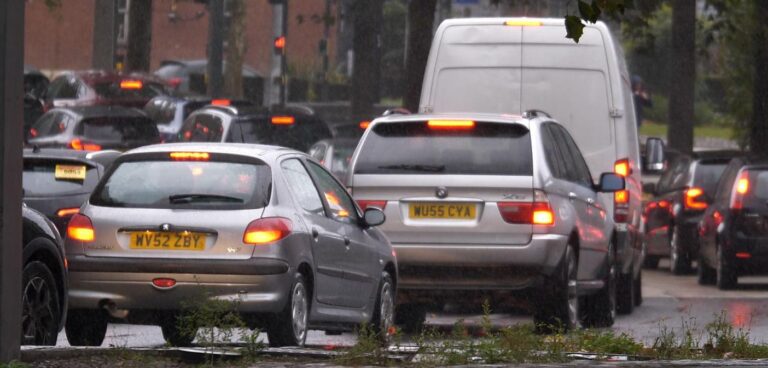The removal of emergency cycle lanes and commuters avoiding public transport following the coronavirus pandemic could see Britain’s roads overrun by traffic congestion, a study by Cycling UK has claimed.
The organisation said many local authorities are scrapping emergency active travel schemes implemented as a result of Covid-19, such as pop-up bikes lanes, which aimed at increasing cycling and walking to ease pressure on the road network.
Research by Cycling UK found these schemes were removed due to a small number of objections that claimed such measures caused congestion.
Duncan Dollimore, head of campaigns at Cycling UK, said: “[The government] announced £250m in emergency funding for councils to implement schemes to make it safer and easier for people to walk and cycle if they wanted to avoid public transport.
“Unfortunately, a vocal minority of people and MPs have taken exception to these schemes, blaming them as the sole cause of congestion.”
According to the study, more cycling and walking infrastructure schemes would create liveable cities. John Parkin, professor of transport engineering at University West of England – Bristol, said: “A good way of relieving the pressure as a result of this excess of motor vehicles is for as many people as possible to switch to using more efficient forms of travel.
“For trips of a typical urban length the bicycle offers a highly efficient alternative. A lane the width of a car lane can carry three to five times as many bicycles as cars.”
The report also found that even though more than half of workers (59%) have not returned to work, congestion levels are almost back to pre-Covid levels. This was supported by a paper published by Rachel Aldred, professor of transport at the University of Westminster, which predicted that up to 2.7 million more people who had previously commuted by public transport could switch to travelling by car.
She said: “Rising levels of motor traffic stem from a failure to provide safe alternatives, like a dense network of protected cycle tracks to give people of all ages real choice about how they travel. Without such changes, motor traffic will only grow further as and when lockdowns are relaxed. Do-nothing means more traffic jams, more road injuries, and more pollution.”
Cycling UK said traffic congestion was a serious issue even before the pandemic and cost the economy £6.9bn a year. It also reported that road users were losing on average 115 hours and £894 a year due to traffic congestion.





